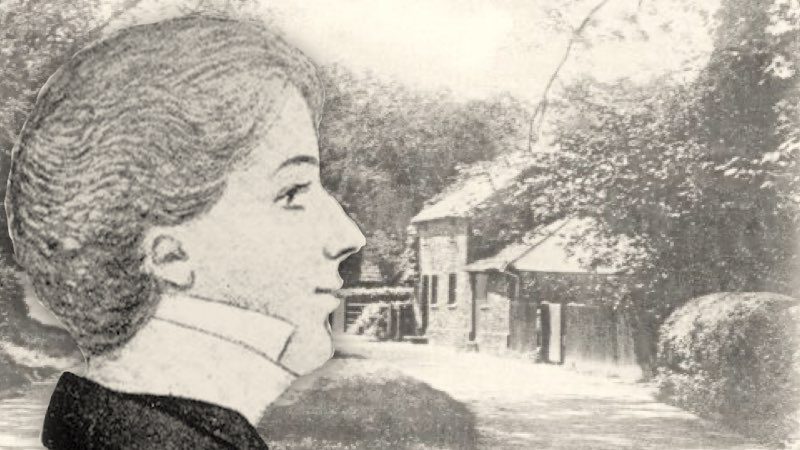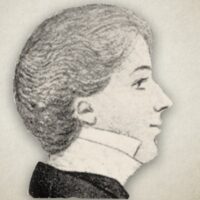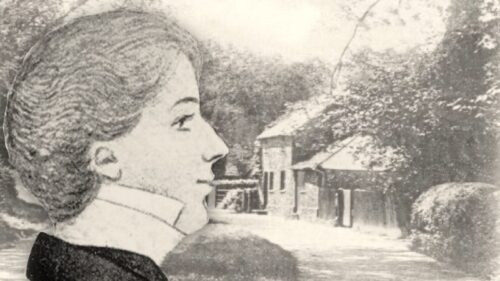
The Harvest Is Great, But The Laborers Are Few
June 11th, 1831
My dear Brother, You will not be surprised at the proceedings of Bulteel and myself, as I informed you in my last what our intentions were. We arrived in Somerset on the 16th of May, and have almost every evening since been preaching, one or both of us, in church, chapel, or the open air. We have, almost in every instance, asked for the church, and if refused, preached in the chapel or open air. We have preached in dissenting chapels, in Wells, Glastonbury, Somerton, Langport, Castlecary, Bruton, Wincanton, &c., sometimes in a church and sometimes in a chapel. We last Sunday had four churches, near Hindon, in Wilts. We are now visiting Mr. Dampier, near Bruton. We are to preach each once in both the churches tomorrow, and, between the two services, I am to preach in Wincanton large Independent chapel. Mr. Rogers, of Yarlington, came here yesterday, to offer me his church for Tuesday evening. He is a man of large fortune, and went last evening, with Mr. Dampier and family, to hear Bulteel preach at Bruton, in the Dissenters’ chapel; and I preached at Wanstrow, near Frome.
I need not say that our conduct excited surprise. We have many hearers. The places of worship are generally much crowded; people come from far to hear us, and invite us to come and preach to them; so we may truly say, “The harvest is great, but the laborers are few.” Many think we have no right to preach in dissenting chapels; but it is not forbidden, either by the canons or the word of God, for the latter is altogether in our favor. I believe the Lord is with us, and makes us instruments in exciting a great inquiry into spiritual things. Mr. Dampier has a wife and nine children, and a large estate; his house and establishment on a superior scale. I expounded to the family this morning. His family, domestics, and friends formed by no means a small congregation. Mr. D. is much reviled and hated; he preaches faithfully, and gives us the right hand of fellowship with cordiality and with great pleasure; assists us in our proceedings, in lending us his carriages, horses, and servants. Of course, the orthodox clergy are very angry with him, and us, and all that lend us their churches, or come to hear us.
We have preached to some thousands in the various places, and not without profit; for I believe the Lord is with us. We bring, I am glad to say, a reproach upon all who receive us, particularly those who open their churches to us after having preached in the chapels in the neighborhood. Some say we are mad; some, that we are beside ourselves; some cry out, “My Lord Bishop, restrain them,” and some wish us God speed; but the generality wonder at our conduct. We are both willing to be turned out of the Establishment for preaching the gospel. One of our Articles says, “Whatever is not read in the Scriptures, nor can be proved thereby, is not required of any man.” Many seemed opposed to us at first, who afterwards support us, acknowledging they cannot say a word against us, for the work may be of God.
I now call to mind a remark which Deborah made to me, about three years ago, coming out of Oakham church— “You will soon be like Rowland Hill, and preach here and there.” Little did I think then those words would prove true. I hope that God will daily give me a greater desire to glorify Him, so that I may serve Him more truly with a single eye. Mrs. Bulteel and son have joined us this week and we are going, the latter end of next week, to Plymouth. We hope to be there about the 18th. Bulteel’s friends live at Plymouth, and there are several in that neighborhood anxious to see us. Bulteel’s name is extremely well known, on account of his sermon; so, whoever opens their pulpit doors is aware of what doctrines we preach.
I cannot enter into particulars about the opposition we met with, and the various effects caused by our preaching. But I can assure you there is no small stir and they are almost ready to say, “These men, who have turned the world upside down, have come here also.” We must remember, Satan is not dead; we may expect that he is laying snares for us in every way. It is easy for him to flatter and puff us up with pride, and make us believe we are doing a great work. He is an old deceiver, and we are young Christians. I hope and pray that God will humble us, and show us more of our nothingness, that we may glory in Christ and in Christ alone. Why we give so much offence is, because so many follow us, and some ministers of the Establishment support us and encourage us; and, by going into dark villages, we expose the ignorance of blind guides.
All these circumstances, you may imagine, give much offence to the ‘chief priests and Pharisees’. The world is not changed, nor the gospel. As it was in former days, so it is now. I am grieved to say, I meet with very little of the power of godliness. I have great opportunities of seeing the state of religion, and find my journey very profitable in that respect. We meet with professors of all denominations, but a different name does not make a different man. It is only the grace of God in the heart that makes men manifestly new creatures in Christ Jesus. The world, in its various shapes, is Christ’s great enemy; and Satan is very busy in blinding the eyes of men, lest the light of the glorious gospel of Christ, who is the image of God, should shine unto them. “All seek their own, not the things which are Jesus Christ’s.” I would think that you find it difficult to overcome the world. Worldly wisdom reigns much. We act much like the Gentiles in making provision for the flesh. When the world sees you so taken up with Christ, from the beauty and glory you see in Him, that you become crucified to the world and the world to you, they will hate you the more.
Thank Deborah for her very kind letter; and, I can assure you, I am pleased to hear that ______ is persecuted for Christ’s sake; I hope to hear of his suffering much more. We have much cause to leap for joy on such occasions, if we be assured it is for righteousness’ sake that we suffer. If he is faithful, they will treat him as they treated his great Master. If we were of the world, the world would speak well of us. Tell me, in your next, what you have suffered for Christ. Satan is well pleased with the state of religion in our day, or he would roar a little more loudly.
We are now at Colinshays, near Bruton, where we have engagements until Wednesday; we shall then go to Kingweston, near Glastonbury, until Tuesday, D.V. We hope to reach Plymouth that evening; we may remain there a fortnight, or longer. Give me a full account of spiritual things in your neighborhood, and give my love to all who love the Lord Christ in sincerity.
Yours affectionately, in the best of bonds,
W. Tiptaft.
William Tiptaft (1803-1864) was a Strict and Particular Baptist pastor. In 1831, he oversaw the construction of a chapel in Abingdon, where he remained as the Pastor until his death. John Hazelton wrote of him—
“William Tiptaft…exercised a ministry largely used to the awakening of sinners and to the driving of those who had only a name to live from the false confidences in which they trusted.” Joseph Philpot wrote of him—“He seemed ever ready to make any personal sacrifice for the glory of God or the good of His people. Time, money, health, strength, life itself, he did not consider his own. He felt he was but a steward who held them in trust, and who might be called at any hour to render an account of his stewardship. To live to God, to walk in His fear, to serve and please Him, to preach His truth, to do His work, to know and obey His will, and to be made a blessing to His people, seemed to be his daily end and aim. I have known men of greater natural abilities, of deeper and more diversified experience, of more shining pulpit gifts, of more enlarged views of Divine truth; but I have never seen anyone, whether minister or private Christian, who approached him in his own peculiar line of practical Godliness, carried out with undeviating consistency for the thirty-five years during which I had the pleasure and profit of his friendship. The Churches of truth needed an example of the practical power of the doctrines which they profess. A light, loose, Antinomian spirit had too much prevailed, and with a great deal of religious talking there was a very small amount of religious walking. But however low quickened souls or living Churches may sink, they have still a conscience made tender in the fear of God, and to this conscience William Tiptaft's keen, pithy remarks, and, above all, his Godly life and shining example, commended themselves."
William Tiptaft's Letters




